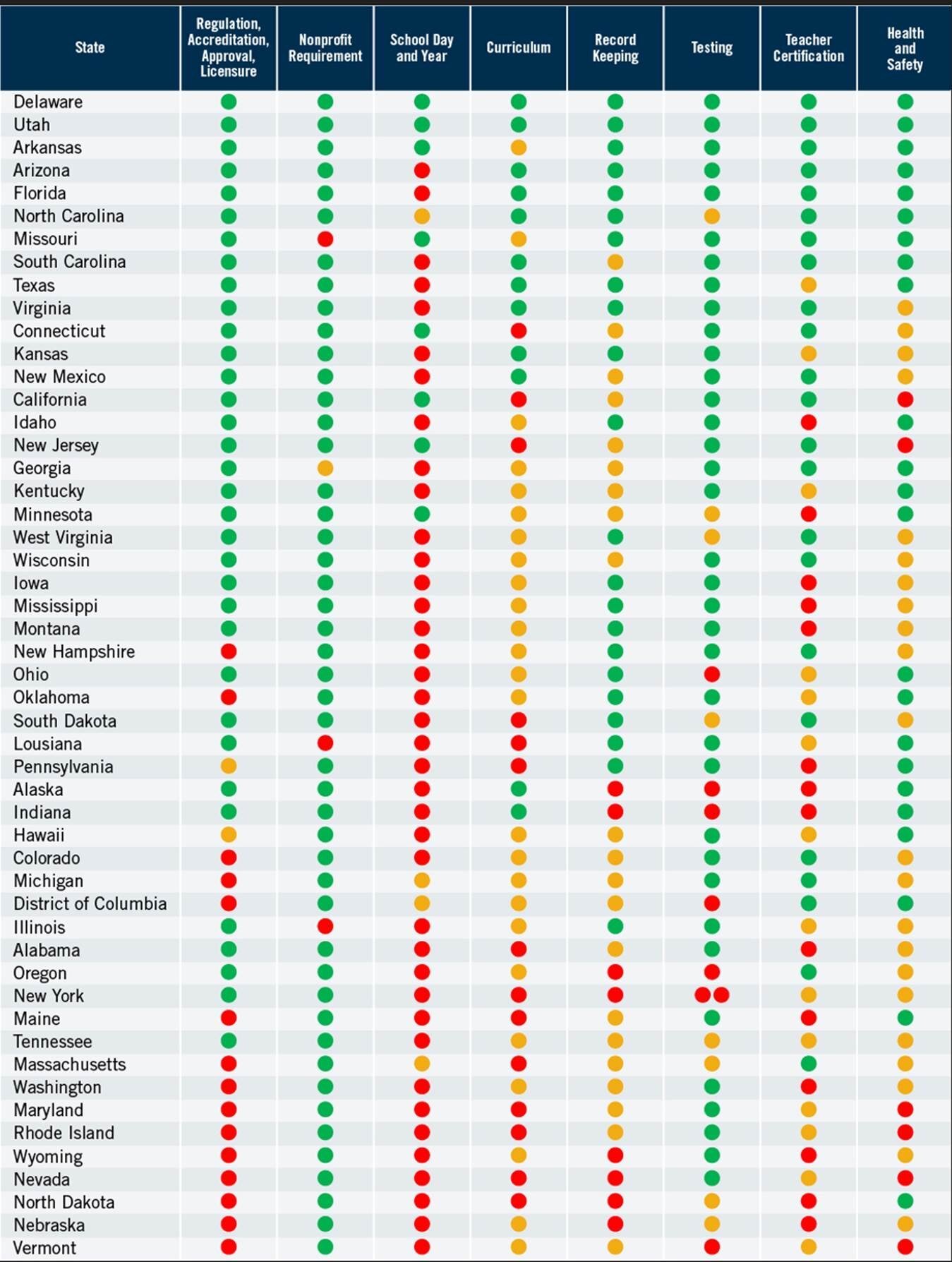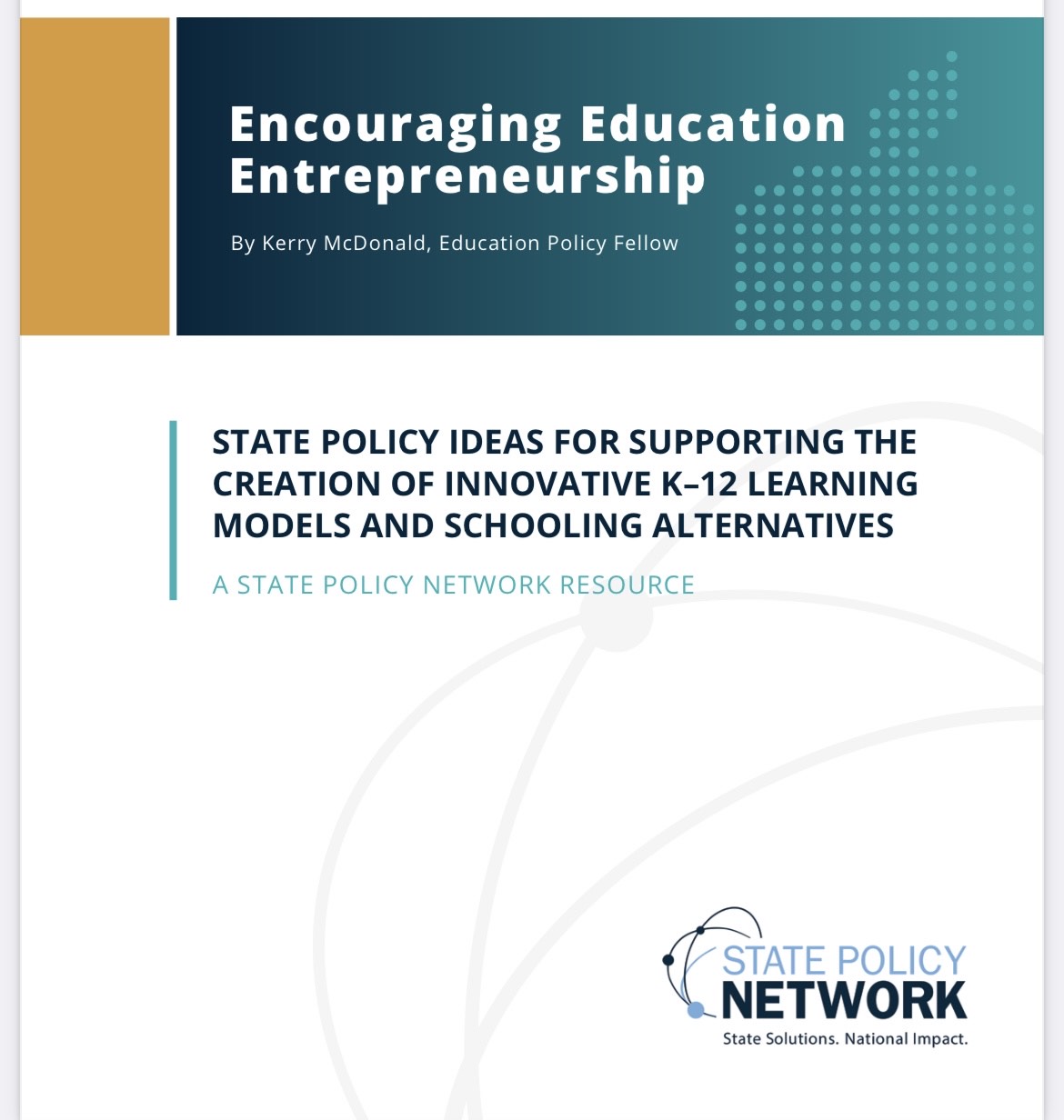Removing Barriers to Emerging Schooling Models
America’s fast-growing microschooling movement is driven by local leaders who may not think of themselves as entrepreneurs in the sense that, had...
2 min read
Don Soifer : Apr 2, 2025 2:21:20 PM

While the growth of school choice programs and policies around the United States continues to receive extensive attention, far less interest has been shown to state's widely varying restrictions on private schools. Even in states where government school monopolies face scant competition and little likelihood exists that taxpayers’ dollars will ever be spent on nonpublic schooling anytime soon, private schools remain the object of heavy regulation.
“The state-by-state burden of private school regulations,” is the focus of a thorough new report by EdChoice. The School Starter Checklist Rankings analysis examines 8 categories of regulatory oversight, evaluating the extent to which private schools in each must accept restrictions to comply.
Nevada, North Dakota and New York top the list of states with the most heavily regulated private schools, according to the new report. These are closely followed by Maryland, Vermont, Maine, Indiana, Alaska and Wyoming, states where private schools can still be considered subject to weighty regulatory pressures.
A far more accepting regulatory landscape was found in Delaware, Utah, Arkansas, Arizona, Florida and North Carolina, the states where requirements on private schools across the 8 categories were judged to be least restrictive, “giving private schools autonomy to operate as they see fit,” the authors explain.
The study evaluated states on these eight categories of regulations on private schools:
States were awarded a Red, Yellow or Green light for each category. Among the rationales expressed for the evaluation metrics:
“Accreditation can be valuable, but poorly run and performing schools in the public system appear to stay accredited, and private schools do not need to get swept up in that system.”
“Schools should be free to be nonprofit or for-profit. Their tax status has nothing to do with their quality.”
“Schools should not be forced to administer the same tests as public schools, as their curriculum may or may not be aligned with state tests or their testing methods.”
“The state should not require teachers to be certified, as state certification is not a meaningful determinant of teacher quality.”
The regulatory burdens discussed in this important new report have major implications for microschools, more than one-third of which choose to establish as private schools under their state’s frameworks.
For these microschools, the extent and degree of each regulatory barrier, and not just their existence, can prove the difference between a manageable challenge and a prohibitively expensive roadblock. These innovative, generally nontraditional, small learning environments frequently serve fewer than 15 children with their unique missions and models. Certain requirements created for large, traditional schools can effectively prevent new microschools from launching:
Michigan, for instance, requires new private schools which are not sponsored by houses of worship to show proof of dedicated cash reserves of at least $50,000 prior to opening.
Nevada’s Department of Education frequently requires private schools to conduct expensive and time-consuming traffic studies and detailed architectural renderings, even when they plan to serve fewer than 20 students housed in a standard commercially-leased facility space.
And in most states where accreditation is required, requirements designed for large, traditional models with multiple years of student and business outcomes are preventing new microschools from coming online, even in states unlikely to see school choice funding models anytime soon.
As microschools become more popular across every state, the extraordinary diversity of unique models created in response to specific educational needs within their communities is bringing new opportunities for children to thrive beyond their prior schooling experiences. This research demonstrates many ways regulations must modernize to account for the growing popularity of innovative models, so that state regulations can remain relevant to the communities they were enacted to support.

America’s fast-growing microschooling movement is driven by local leaders who may not think of themselves as entrepreneurs in the sense that, had...
Juliet Squire
.jpg)
For many businesses, recent changes by the federal Department of Labor to the Fair Labor Standards Act (FLSA) concerning requirements for employers...